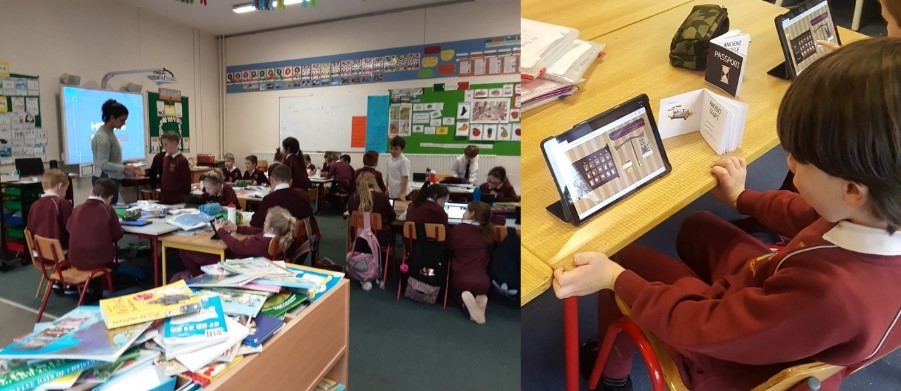Effects of a videogame in math performance and anxiety in primary school
DOI:
https://doi.org/10.17083/ijsg.v8i3.434Keywords:
game-based learning, mathematics anxiety, primary school, history of mathematicsAbstract
The present paper describes the design and evaluation of a videogame developed to support math education and overcome math anxiety (MA) at the primary school level. The game narrative is based on the history of math. The player travels back on time and meets on-player characters such as Pythagoras of Samos and Ada Lovelace, learning about how math was used during their times. The player is invited to play a minigame where the concepts shared by the characters are used as a strategy to win. The game’s evaluation consisted of a pre and post-testing study that measured students’ math performance and MA levels. The experiment also included a group interview to collect students’ perceptions about the game. The experiment lasted five weeks, and 88 students from three primary schools played the game on weekly sessions 45-60 minutes long. Statistical analysis suggested the game significantly improves students’ math performance. However, the results indicated that female students from one of the classrooms had higher MA levels after playing the game. In addition, qualitative data shows students had a high level of engagement with the gameplay.

Downloads
Published
Issue
Section
License
Copyright (c) 2021 Mariana Rocha, Pierpaolo Dondio

This work is licensed under a Creative Commons Attribution-NonCommercial-NoDerivatives 4.0 International License.
IJSG copyright information is provided here.